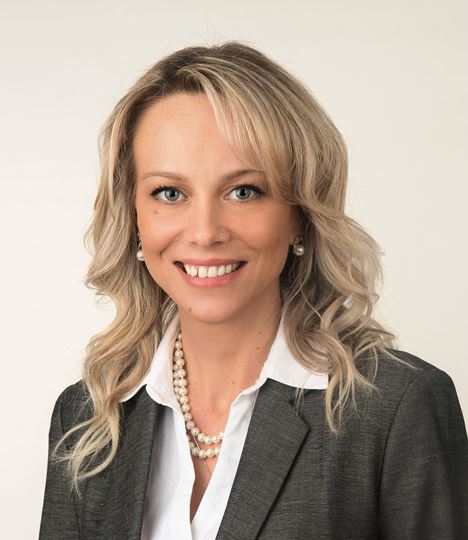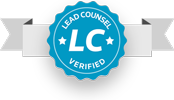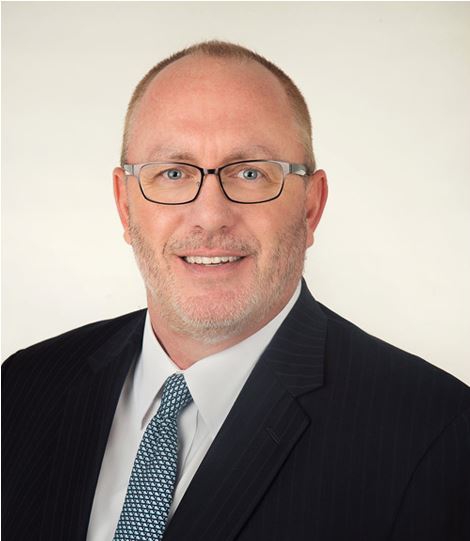If your child has been arrested for a crime in Florida, it is important to understand that a juvenile crime does not necessarily mean a slap on the wrist. While consequences for juvenile crimes in Florida are designed to have a rehabilitative outcome, there are several cases where a juvenile arrest can have a lifelong effect.
I’m sure that right now you are scared and are not certain where to turn. You may want your child to learn a lesson for the trouble they have caused. There is nothing wrong with wanting your child to face the music while at the same time wanting to protect your son or daughter from lifelong consequences. No matter how diligent you have been as a parent, sometimes our children find themselves on the wrong side of the law. The struggle we have as parents is deciding what to do and how. If your child was arrested, you need to act quickly.
Exceptional Representation for Juvenile Defendants
My name is Tim Flaherty. My partner, Brandy Merrifield, and I are juvenile defense lawyers in Fort Walton Beach. We are also parents ourselves. We understand the gut-wrenching worry and stress that comes with raising kids. We also understand that you want to make sure your child’s future is protected. If you entrust Brandy and me with your child’s case, our number-one priority will be to protect their future.
Letting Your Child Face Charges Without an Attorney Can Have Devastating Consequences
It is all too easy to fall into the trap of thinking that just because the case is in juvenile court, it’s not necessary to hire a criminal lawyer for your son or daughter’s case. That is simply not true. Juvenile crime does not always result in juvenile consequences. In some cases, juvenile offenses are moved up to adult court, with adult penalties, even when the accused is as young as 14 years old!
It is difficult to offer all of the information that you may be looking for on one page, so below, you will see links to additional pages that discuss more specific topics that are related to how juvenile cases are prosecuted:
- What is the juvenile process from arrest to resolution?
- When can the state charge a juvenile as an adult?
- What is juvenile diversion?
Common Misconceptions About Juvenile Arrests
Misconception #1: A juvenile charge is not serious.
This could not be further from the truth. While the juvenile system is designed to be more rehabilitative than incarcerative, we can tell you without a doubt, a juvenile charge IS serious and should not be viewed as a slap on the wrist. Juvenile charges, like adult charges, can result in incarceration. While juvenile prison is much less restrictive and provides more programs for rehabilitation, it is still prison. It looks like prison, it feels like prison, and it can drastically affect your child’s future.
Misconception #2: A juvenile arrest is not as serious as an adult arrest.
False. A juvenile arrest is just as serious as an adult arrest because the consequences of a juvenile arrest could mean commitment to a juvenile program and lifelong consequences from a criminal conviction on their record. Unlike the adult system, a juvenile arrest is the first step in a series of complicated and confusing procedures.
When a juvenile is arrested, the Department of Juvenile Justice (DJJ) begins a process where they determine the risk level of your child. This procedure is done with the aid of a Juvenile Risk Assessment (sometimes called a DRAI). The risk assessment classifies your child through a point system: the more serious the offense or the more interactions your child has had with DJJ, the higher the score. The determination of risk level based on the score will dictate whether your child can be released after arrest or held for up to 30 days. Juveniles that score for detention (jail) are held for a minimum of 21 days and an additional nine days beyond that, depending on the charge and risk to the community. Unlike adult offenders who are entitled to a bond at first appearance, juvenile offenders do not receive the same consideration.
Misconception #3: My kid can’t go to prison with a juvenile arrest.
Unfortunately, this misconception is false, and far too often, parents realize it too late. If your son or daughter is charged with a felony, or if they have had charges in the past, juvenile prison is a very real possibility. For juvenile offenders, prison is called a “program.” A program is placement in a facility selected by the Department of Juvenile Justice where your child will serve their time. The placement and facility location depend on the nature of the charge and the level of risk the court thinks your child poses to the community.
DJJ programs come in a variety of levels. There are four levels in the State of Florida, but only three are commitment programs that are similar to adult prison.
- Minimum-Risk Nonresidential. This commitment level allows your child to stay at home rather than in a jail-style facility. You, as the parent, act as your child’s probation officer and work with DJJ to ensure your child completes the requirements established by the court. Due to the lower level of restriction, juveniles charged with firearm offenses, sexual misconduct, and first-degree or life felonies are not eligible for this program level.
- Non-Secure Residential. This is a jail-style commitment but at a lower level that allows juveniles in this program to have access to the community under supervision. Juveniles placed in this program are considered a low or moderate risk to the community. These facilities are secured by fencing, guards, or locking doors.
- High-Risk Residential. This level of program does not allow for a juvenile to interact with the community. If your child is placed in a high-risk residential, they can expect close supervision and a lock-down facility. At this level, juveniles who have been compliant during their stay can receive 72-hour passes and access to home visits.
- Maximum-Risk Residential. This program is a total lock-down with zero access to the community. These facilities are close supervision and are reserved for maximum-risk juveniles. Generally, juveniles in this program are charged with serious or violent offenses.
Misconception #4: As long as my child is under 18, he will not be tried as an adult.
Florida law has several provisions that allow the state to charge a person under the age of 18 as an adult. In some cases, a child as young as 14 or 15 can be sent to adult court. This means adult sanctions, adult sentences, a conviction that will follow them forever, and lifetime consequences. If your son or daughter is over 14 and charged with a felony in the Fort Walton Beach area, you need to contact a juvenile defense attorney ASAP. The decision to charge a juvenile as an adult can be made immediately after arrest. That means that the decision to send your child to adult court could happen at any point. Having an attorney that understands the severity of transfer to adult court is imperative. We know what it takes to protect your child from being transferred to the adult system.
Misconception #5: A juvenile arrest will not stay on my child’s record.
False. A juvenile’s record, while closed from public view, will stay on your child’s record. Many parents believe that a juvenile charge will be automatically expunged or removed from their child’s record, but this is incorrect. A juvenile record, like an adult one, requires an additional process to clear the record of the arrest. Most juvenile charges will stay on your child’s record until they reach the age of 24.
Common Juvenile Arrests
No matter what your son or daughter has been accused of, they will be required to go to court and face the judge, the prosecutor, and the juvenile probation officers. The following are some of the more common juvenile arrests we regularly see here in Fort Walton Beach and Okaloosa County:
- Drug Offenses
- DUI for Drivers Under 21
- Minor in Possession (MIP)
- Assault or Battery
- Criminal Mischief
- Sex Offenses
- Theft Offenses
Defending Your Child Against Juvenile Charges
Defending a juvenile charge is similar to fighting an adult case; however, there are some key differences that parents need to be aware of. If your son or daughter has been charged with a crime, you can expect to have the Department of Juvenile Justice in your life for the foreseeable future. This is where a skilled defense team can help you navigate what to expect and protect your child from a lifetime of consequences.
In any case, the court is concerned with the threat an offender poses to the community. For a juvenile offender, the concern is two-fold: (1) is the juvenile a risk to themselves? and (2) is the juvenile a risk to anyone in the community? The court is concerned with whether the juvenile has adequate supervision and resources in place to avoid any threat or harm to themselves. The court is also concerned with the nature of the charge and the level of supervision the juvenile has to protect the community. What does that mean for a parent? It means that DJJ and the court will get actively involved with not only your child’s life but also yours. DJJ will want to question you about your child’s history, their home life, schooling, your parenting style, etc. In a juvenile case, the parent will also face questions related to how they parent their child.
We will explore every aspect of your child’s case to include police reports, witness statements, and digital evidence. We take a comprehensive approach to defense in that you will have the benefit of two attorneys, rather than one, and a highly skilled staff that knows what it takes to fight and win a juvenile charge.
Resolving Florida Juvenile Cases
Juvenile cases can be resolved much like adult cases. Juveniles can receive an incarcerative sentence, probation, or diversion. The key to defending a juvenile case is expertise in fighting not only a criminal charge but also the understanding that the Florida juvenile system has different goals than the adult system. The goals of the juvenile system are punishment and rehabilitation. Knowing the twin goals of the system, and more importantly, how to use them to benefit your client is paramount. We will work tirelessly with you, as a parent, as well as your child. Our goal is to do everything within the law to protect your child’s future and provide you with peace of mind knowing that your child has an advocate, and you are not alone.













